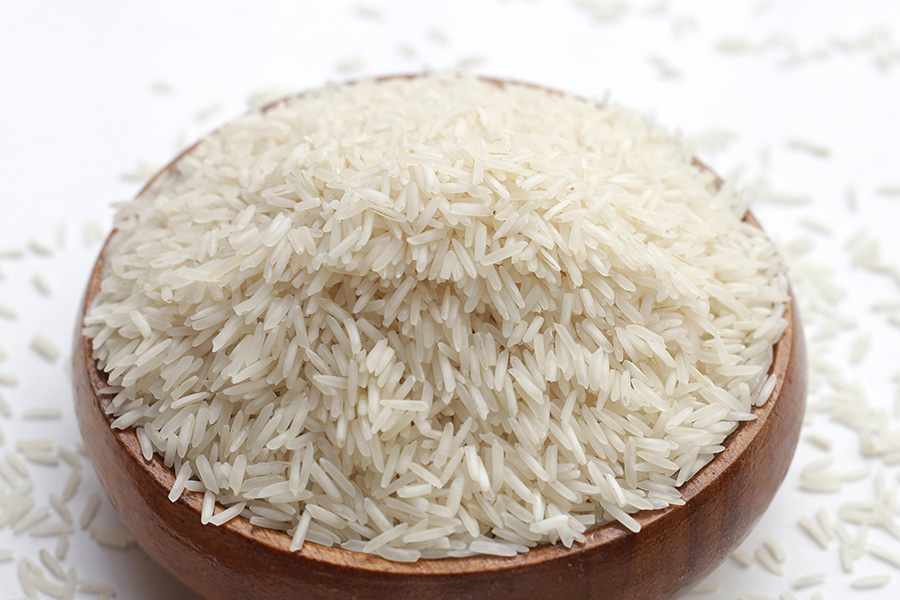How Long Basmati Rice Lasts in the Fridge?
A Comprehensive Guide to understanding how long basmati rice will last when refrigerated.
Basmati rice, celebrated for its long grains, fragrant aroma, and delicate flavor, is a staple in many households, particularly in South Asian and Middle Eastern cuisines. After cooking, ensuring the proper storage of basmati rice is essential to maintaining its quality and preventing foodborne illness. In this article, we will discuss how long basmati rice lasts in the fridge, the risks of improper storage, and best practices for preserving it. This guide relies on government food safety recommendations to offer accurate and reliable advice.
How Long Cooked Basmati Rice Lasts in the Fridge
According to the United States Department of Agriculture (USDA), cooked basmati rice can be safely stored in the refrigerator for 3 to 4 days. Beyond this timeframe, the quality of the rice begins to deteriorate, and the risk of bacterial growth increases. Storing basmati rice for longer than four days in the fridge may lead to spoilage, even if kept in airtight containers .
The FoodSafety.gov website, which compiles food safety information from agencies like the USDA and the Food and Drug Administration (FDA), reinforces this guideline, stating that cooked rice, including basmati rice, should be discarded after four days of refrigeration to avoid any potential food safety risks .
The Risks of Improperly Storing Cooked Basmati Rice
Cooked rice, including basmati, is prone to contamination by harmful bacteria, particularly Bacillus cereus. This bacterium is commonly found in soil and can survive the cooking process due to its heat-resistant spores. When rice is left at room temperature for too long, Bacillus cereus can multiply and produce toxins that are not eliminated by reheating .
The Centers for Disease Control and Prevention (CDC) explains that warm, moist environments, like cooked basmati rice, provide an ideal breeding ground for bacteria if the rice is not cooled and stored properly. Bacteria can grow rapidly when rice is left out at temperatures between 40°F and 140°F, making it critical to refrigerate rice within 2 hours of cooking to prevent contamination .
Best Practices for Storing Cooked Basmati Rice in the Fridge
To ensure the safety of cooked basmati rice and maximize its shelf life, the following storage practices are recommended:
- Cool Rice Quickly: The USDA advises cooling cooked rice rapidly to minimize the time it spends in the “danger zone” (40°F to 140°F). Spread the rice out in a thin layer on a baking sheet or shallow tray to allow it to cool down to room temperature within one hour. This reduces the risk of bacterial growth .
- Store in Airtight Containers: Once cooled, transfer the rice to airtight containers to prevent exposure to moisture and air in the fridge. Airtight storage helps retain the rice’s flavor and texture while keeping it safe from contamination.
- Reheat Safely: When reheating leftover basmati rice, make sure it reaches an internal temperature of 165°F (74°C). This temperature is recommended by both the USDA and CDC to kill any harmful bacteria present in the food. Adding a splash of water before reheating can help maintain the rice’s moisture and prevent it from drying out .
- Label and Date: Clearly label the container with the date it was cooked. Keeping track of how long the rice has been stored helps ensure it is consumed within the USDA’s recommended 3 to 4 days.
Freezing Cooked Basmati Rice for Longer Storage
If you want to store cooked basmati rice for a longer period, freezing is an excellent option. The USDA advises that cooked rice can be frozen for up to 6 months, allowing for more extended storage without compromising food safety or quality .
To freeze cooked basmati rice:
- Allow the rice to cool completely before freezing.
- Divide the rice into portion-sized containers or freezer bags, which will make it easier to reheat only the amount needed.
- Ensure the containers or bags are airtight to prevent freezer burn and preserve the rice’s texture.
- When ready to use, reheat the rice directly from frozen by microwaving or steaming it, making sure it reaches an internal temperature of 165°F.
Signs That Basmati Rice Has Spoiled
Even when stored properly, cooked rice can spoil over time. It is essential to recognize the signs of spoilage to avoid foodborne illnesses. Indicators that your basmati rice has gone bad include:
- Unpleasant Odor: Spoiled rice will emit a sour or musty smell. If your rice has an off smell, discard it immediately.
- Slimy Texture: A slimy or overly sticky texture is a sign that bacteria have begun to grow, and the rice should be thrown out.
- Mold or Discoloration: If mold or dark spots appear on the rice, it has spoiled and should not be consumed.
According to the CDC, consuming spoiled rice can result in symptoms like vomiting, diarrhea, and stomach cramps. Symptoms can occur within 6 to 15 hours after ingestion of contaminated food .
Health Benefits of Properly Stored Basmati Rice
When stored correctly, basmati rice retains its fragrant aroma, fluffy texture, and nutritional benefits. Basmati rice, particularly brown basmati, offers various health benefits:
- Low Glycemic Index: Basmati rice has a lower glycemic index compared to other white rice varieties, meaning it causes slower and more stable increases in blood sugar levels, making it a better option for people managing blood sugar levels.
- High in B-Vitamins: Basmati rice, especially the whole grain varieties, contains essential B vitamins such as niacin and thiamin, which play key roles in energy metabolism.
- Gluten-Free: Like all rice, basmati rice is naturally gluten-free, making it a safe grain choice for those with celiac disease or gluten intolerance.
By following proper storage practices, you can continue to enjoy the health benefits of basmati rice without the risk of bacterial contamination.
Conclusion
Cooked basmati rice can last in the fridge for 3 to 4 days when stored in airtight containers and refrigerated promptly after cooking. Beyond this period, the risk of bacterial growth increases, and the rice should be discarded. Following the USDA and CDC’s guidelines for rapid cooling, airtight storage, and reheating to 165°F ensures that your basmati rice remains safe and enjoyable to eat. For longer-term storage, freezing basmati rice can preserve its quality for up to 6 months. By following these best practices, you can enjoy the fragrant and flavorful qualities of basmati rice while minimizing the risk of foodborne illness.
References:
- USDA. Leftovers and Food Safety. Available at: https://www.fsis.usda.gov
- FoodSafety.gov. Leftover Foods and Food Safety. Available at: https://www.foodsafety.gov
- CDC. Bacillus cereus and Food Poisoning. Available at: https://www.cdc.gov
- CDC. Safe Food Handling. Available at: https://www.cdc.gov/foodsafety



